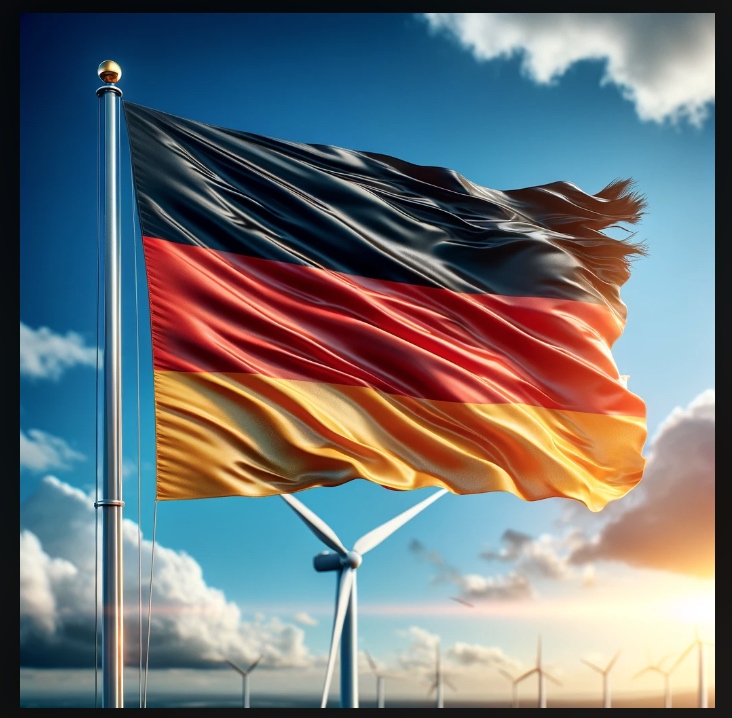Overview
Germany is a leading country in Europe, known for its robust economy and commitment to sustainable energy and environmental goals. The nation has embarked on an ambitious transition, known as “Energiewende,” aimed at reducing greenhouse gas emissions, phasing out nuclear power, and increasing the use of renewable energy sources. Germany’s energy mix is diverse, including coal, natural gas, nuclear power (phasing out by 2022), and a growing share of renewable energy sources such as wind, solar, and biomass.
Institutions and Energy Policy
Germany’s energy policy is shaped by federal and state government institutions, with the Federal Ministry for Economic Affairs and Climate Action playing a key role in crafting energy policies. The Energiewende, Germany’s energy transition policy, is central to its strategy, focusing on sustainability, security of supply, and affordability. The policy framework includes measures to promote energy efficiency, increase renewable energy usage, and reduce carbon emissions. Germany also participates in European Union energy initiatives and complies with EU regulations and directives to harmonize its energy policy with broader EU goals.
Energy Companies
Germany hosts a range of energy companies across various sectors:
- Oil and Gas: Major companies include Wintershall Dea and E.ON, which are involved in natural gas and petroleum exploration and distribution.
- Power Sector: E.ON and RWE are significant players, operating in power generation, distribution, and trading. Both companies have been adapting their portfolios towards renewable energy.
- Renewable Energy: Germany is home to leading renewable energy companies, including Siemens Gamesa for wind power and SMA Solar Technology for solar energy solutions. The country’s focus on renewable energy has fostered a vibrant ecosystem of companies specializing in wind, solar, biomass, and hydroelectric power.
Energy Supply
Germany’s energy supply is transitioning from fossil fuels and nuclear power to renewables. As of the latest data, renewable energy sources contribute significantly to the country’s electricity generation, with wind and solar photovoltaic (PV) being the most substantial contributors. Coal, while still a major part of the energy mix, is on a declining trend due to environmental concerns and policy decisions. Natural gas plays a critical role in ensuring energy security and balancing the grid, especially as renewable energy sources increase.
Energy Prices
Energy prices in Germany are among the highest in Europe, influenced by taxes, levies related to the renewable energy transition, and global market dynamics. The government has implemented measures to alleviate the burden on consumers and businesses, including subsidies for renewable energy and exemptions for energy-intensive industries. Energy price trends are closely monitored and are subject to fluctuations based on international energy markets, domestic policy decisions, and the ongoing transition to renewable energy sources.
Energy Consumption
Germany’s energy consumption is characterized by a strong industrial base, significant residential heating needs, and an efficient transport sector. The country has made strides in improving energy efficiency across all sectors, reducing overall energy consumption even as the economy grows. Renewable energy’s share in consumption has been rising steadily, reflecting the country’s commitment to the Energiewende and its goals of sustainability and energy independence.
Issues and Prospects
Germany faces several challenges in its energy transition, including managing the phase-out of coal and nuclear energy, ensuring grid stability with increased renewable energy integration, and maintaining energy affordability. The country is also working to reduce its dependency on natural gas imports, particularly from Russia, by diversifying its energy sources and increasing energy storage capacity. Looking forward, Germany’s energy landscape is set to evolve with advancements in technology, increased electric vehicle adoption, and further growth in renewable energy capacity. The success of the Energiewende will depend on continued innovation, investment in energy infrastructure, and international cooperation on energy and climate issues.
Recent Developments







